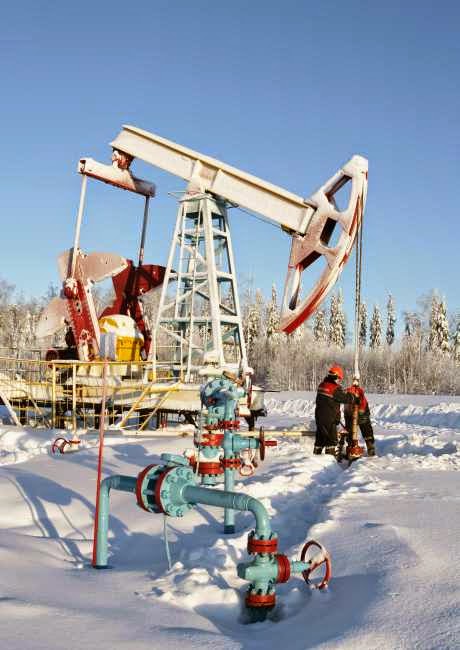Recent events may have pushed the Brent front month futures contract back towards US$108 per barrel; but there's no denying some have been 'contangoed'! Ukrainian tensions and lower Libyan production are hard to ignore, even if the latter is a bit of a given.
Nonetheless, for a change, the direction of both benchmark prices this month indicates that July did belong to the physical traders with papers traders, most notably Hedge Funds, taking a beating.
Nonetheless, for a change, the direction of both benchmark prices this month indicates that July did belong to the physical traders with papers traders, most notably Hedge Funds, taking a beating.
It's astonishing (or perhaps not) that many paper traders went long on Brent banking on the premise of "the only way is up" as the Iraqi insurgency escalated last month. The only problem was that Iraqi oil was still getting dispatched from its southern oil hub of Basra despite internal chaos. Furthermore, areas under ISIS control hardly included any major Iraqi oil production zone.
After spiking above $115, the Brent price soon plummeted to under $105 as the reality of the physical market began to bite. It seems European refiners were holding back from buying the expensive crude stuff faced with declining margins. In fact, North Sea shipments, which Brent is largely synced with, were at monthly lows. Let alone bothering to pull out a map of Iraqi oilfields, many paper traders didn't even bother with the ancillary warning signs.
As Fitch Ratings noted earlier this month, the European refining margins are likely to remain weak for at least the next one to two years due to overcapacity, demand and supply imbalances, and competition from overseas. Over the first half of 2014, the northwest European refining margin averaged $3.3 per barrel, down from $4 per barrel in 2013 and $6.8 barrel in 2012.
Many European refineries have been loss-making or only slightly profitable, depending on their complexity, location and efficiency. They are hardly the sort of buyers to purchase consignments by the tanker-load during a mini bull run. The weaker margin scenario itself is nothing new, resulting from factors including a stagnating economy and the bias of domestic consumption towards diesel due to EU energy regulations
"This means that surplus gasoline is exported and the diesel fuel deficit is filled by imports, prompting competition with Middle Eastern, Russian and US refineries, which have access to cheaper feedstock and lower energy costs on average. Mediterranean refiners are additionally hurt by the interruption of oil supplies from Libya, but this situation may improve with the resumption of eastern port exports," explains Fitch analyst Dmitry Marinchenko.
Of course tell that to Hedge Funds managers who still went long in June collectively holding just short of 600 million paper barrels on their books banking on backwardation. But thanks to smart, strategic buying by physical traders eyeing cargoes without firm buyers, contango set in hitting the hedge funds with massive losses.
When supply remains adequate (or shall we say perceived to be adequate) and key buyers are not in a mood to buy in the volumes they normally do down to operational constraints, you know you've been 'contangoed' as forward month delivery will come at a sharp discount to later contracts!
Now the retreat is clear as ICE's latest Commitments of Traders report for the week to July 15 saw Hedge Funds and other speculators cut their long bets by around 25%, reducing their net long futures and options positions in Brent to 151,981 from 201,568. If the window of scrutiny is extended to the last week of June, the Oilholic would say that's a reduction of nearly 40%.
As for the European refiners, competition from overseas is likely to remain high, although Fitch reckons margins may start to recover in the medium term as economic growth gradually improves and overall refining capacity in Europe decreases. For instance, a recent Bloomberg survey indicated that of the 104 refining facilities region wide, 10 will shut permanently by 2020 from France to Italy to the Czech Republic. No surprises there as both OPEC and the IEA see European fuel demand as being largely flat.
Speaking of the IEA, the Oilholic got a chance earlier this month to chat with its Chief Economist Dr Fatih Birol. Despite the latest tension, he sees Russian oil & gas as a key component of the global energy mix (Read all about it in The Oilholic's Forbes post.)
Meanwhile, Moody's sees new US sanctions on Russia as credit negative for Rosneft and Novatek. The latest round of curbs will effectively prohibit Rosneft, Novatek, and other sanctioned entities, including several Russian banks and defence companies, from procuring financing and new debt from US investors, companies and banks.
Rosneft and Novatek will in effect be barred from obtaining future loans with a maturity of more than 90 days or new equity, cutting them off from long-term US capital markets. As both companies' trade activities currently remain unaffected, Moody's is not taking ratings action yet. However, the agency says the sanctions will significantly limit both companies' financing options and could put pressure on development projects, such as Novatek's Yamal LNG.
No one is sure what the aftermath of the MH17 tragedy would be, how the Ukrainian crisis would be resolved, and what implications it has for Russian energy companies and their Western partners. All we can do is wait and see. That's all for the moment folks. Keep reading, keep it 'crude'!
To follow The Oilholic on Twitter click here
To follow The Oilholic on Twitter click here
To follow The Oilholic on Google+ click here
To follow The Oilholic on Forbes click here
To email: gaurav.sharma@oilholicssynonymous.com
© Gaurav Sharma 2014. Photo: Oil pipeline © Cairn Energy
© Gaurav Sharma 2014. Photo: Oil pipeline © Cairn Energy


